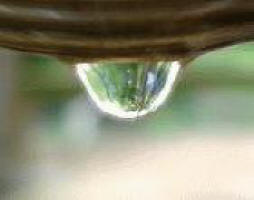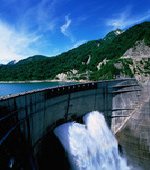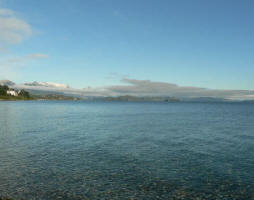 Jordan: $184.3 million PPP Expansion Project of As-Samra Wastewater Plant begins
Jordan: $184.3 million PPP Expansion Project of As-Samra Wastewater Plant begins
The Government of Jordan, represented by the Ministry of Water and Irrigation (MWI), has signed an agreement with the Samra Project Company (SPC) for the implementation of the expansion project for As-Samra Wastewater Treatment Plant (WWTP), which will be under Build-Operate-Transfer (BOT) contract for 25 years.
The expansion project is funded in part by the US Government’s Millennium Challenge Corporation (MCC) through a grant of $93 million that come out of a $275 million Compact grant provided to the Government of Jordan to manage and implement development projects through the Millennium Challenge Account-Jordan (MCA-Jordan), a company established for that purpose.
The As-Samra Expansion Project is structured as a partnership between the public and private sectors with the MCC grant representing the Government of Jordan’s contribution while the SPC, a consortium formed by Suez Environment, Infilco Degremont Inc., and Morganti Group Inc., and a syndicate of financiers led by Arab Bank will provide a loan to cover the remaining financing needs.
The successful implementation of the expansion project will improve the environmental conditions by properly handling the growing volumes of wastewater from Amman and Zarqa Governorates, while ensuring that farmers who rely on treated water for irrigation enjoy additional safe water for their agricultural products.
Witnessing the signing ceremony was the Minister of Finance Suleiman Hafez, the U.S. Ambassador to Jordan Mr. Stuart Jones, MCC CEO Mr. Daniel Yohannes, and Mr. Abdel Hamid Shoman, Chairman of Arab Bank.
The plant’s expansion is expected to take 36 months and will begin in August of this year.
“The existing plant, which treats the wastewater from Amman and Zarqa Governorates, has almost reached its maximum hydraulic capacity; the expansion project aims to increase this capacity from 267,000 cubic meters per day to 364,800 cubic meters per day as well as its ability to handle suspended solids and biological materials, among other critical treatment requirements,” MWI /PMU Director Eng. Basem Telfah (recently nominated General Secretary at MWI) said.
“The United States through the Millennium Challenge Corporation is proud to partner with Jordan to achieve the Compact’s full promise, because with greater water security, Jordanians will also reduce poverty and achieve sustainable economic growth,” Yohannes said.
MCA-Jordan CEO Eng. Zoubi also noted that in addition to supporting a portion of the cost associated with the construction of the expansion of the existing As-Samra WWTP, MCC funding will support technical assistance for the management and supervision of the construction in order to ensure the highest level of quality control and transparency of operations. MCA-Jordan has already through a competitive bidding process selected an international consultant to supervise the expansion works.
“The signing of this agreement is testimony to the success of the longstanding partnership between the Government of Jordan and SPC. We are grateful to MWI and MCC for entrusting us to develop the expansion, thus making As-Samra one of the largest and most modern wastewater treatment plants in the Middle East,” SPC General Manager Hassan Abdullah said.
Mr. Abdel Hamid Shoman, Chairman of Arab Bank said, “Arab Bank was established with a purpose of supporting the Arab World by playing a significant role on both an economic and social level. Today, through our support and involvement in such a key infrastructure project we are proud to continue building on this commitment, creating shared and sustainable value for the green environment for all stakeholders.”
The As-Samra WWTP Expansion Project together with the Wastewater Network Project, another project funded by MCC to rehabilitate and expand the wastewater network in Zarqa Governorate, will benefit approximately 375,000 households, for a total of 2,020,000 people, in Amman and Zarqa Governorates. By producing larger volumes of treated wastewater suitable for reuse in agriculture, the project will allow to substitute some of the fresh water in the Jordan Valley that could be rechanneled for more demanding urban needs.
| Contact information | n/a |
|---|---|
| News type | Inbrief |
| File link |
http://www.mca-jordan.gov.jo/index.php?page_type=news&cat=News&press_id=166 |
| Source of information | The Millennium Challenge Account – Jordan (MCA-J) |
| Keyword(s) | Wastewater Plant |
| Subject(s) | ANALYSIS AND TESTS , CHARACTERISTICAL PARAMETERS OF WATERS AND SLUDGES , DRINKING WATER , DRINKING WATER AND SANITATION : COMMON PROCESSES OF PURIFICATION AND TREATMENT , ENERGY , FINANCE-ECONOMY , HYDRAULICS - HYDROLOGY , INDUSTRY , INFRASTRUCTURES , POLICY-WATER POLICY AND WATER MANAGEMENT , PREVENTION AND NUISANCES POLLUTION , SANITATION -STRICT PURIFICATION PROCESSES , SLUDGES , WATER QUALITY |
| Relation | http://www.emwis.net/countries/fol749974/country045975 |
| Geographical coverage | Jordan, |
| News date | 15/06/2012 |
| Working language(s) | ENGLISH |
A set of multimillion-dollar projects to improve water and wastewater services in Zarqa Governorate is on track and will be completed on time and budget, Millennium Challenge Corporation (MCC) CEO Daniel Yohannes said.
Yohannes, whose organisation is funding the project, told The Jordan Times that three million people in Zarqa and Amman would benefit from the ongoing five-year project, while over 19,000 households in Zarqa will be connected to sewage networks once the venture is completed.
“I am very satisfied with where we are today and I’m 100 per cent confident that the project will be done on time and on budget in spite of all difficulties… The project will be able to provide the kind of services that are required and demanded by people in Zarqa,” Yohannes said.
The MCC extended a $275 million grant compact to Jordan in October 2010 to renovate and extend water networks in Zarqa Governorate. The grant, which went into effect in December last year, is managed and implemented by the Millennium Challenge Account (MCA)-Jordan.
Under the MCC grant programme, three integrated projects will be implemented: a $108-million water network project, a $58-million wastewater network project, and the $93-million Samra Wastewater Treatment Plant expansion project.
“There are always challenges, especially in construction projects, but we have assembled an outstanding team with experts in water. We have an excellent partnership with the government,” Yohannes highlighted.
Noting that the project is progressing, he added that most of the work will be completed during the next one-year-and-a-half.
“By expanding the wastewater treatment plant, more water for irrigation uses will be provided, which means more water to be used for household needs.”
He also underscored the importance of the Samra Wastewater Treatment Plant expansion project, noting that it is a model of public-private partnership that aims at ensuring Jordan a secure water supply.
Asked whether the corporation would provide Jordan with additional aid in the future, the MCC chief said that completing the water and wastewater project in Zarqa is its main focus now.
He noted that the MCC is trying to encourage public-private sector cooperation in its partner countries to invest in areas that need development.
“Ultimately, our model is to encourage countries to replace aid with investment from the private sector, so that aid is no longer needed,” Yohannes explained.
In 2006, the MCC provided Jordan with a $25 million threshold programme to support the government’s efforts in advancing political and economic reforms.
The $25 million grant was allocated in two areas over the course of two years: $16.5 million to support municipal development programmes, and $8.5 million for modernising the customs administration.
“All of our projects, whether threshold programmes or compacts, are all identified by our partner countries… As a result of the $25 million investment, very much improved customs processing resulted: 80 per cent of the processing has improved significantly since the investment in that area,” Yohannes said.
The MCC is an independent US foreign aid agency created by the US Congress in 2004 to promote economic growth and poverty reduction.
Posted by jauad at 05 Jul 2012 16:36:01
 you are not logged in
you are not logged in





